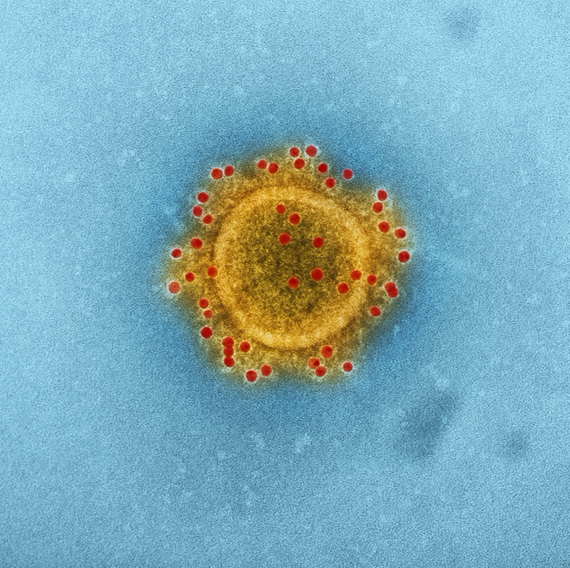Call Today to Schedule an Appointment: 212-319-5282
Types of Allergic Reactions
What are the different types of allergic reactions? The immune system in the body is responsible for protecting us against bacteria and viruses. This system consists of certain components that make up your blood, and fight against any harmful substances that are a threat to your body. This defense mechanism enables your body to eliminate unfavorable substances.
In some cases, your immune system may respond to substances that are not exactly a lethal threat to your health. This happens when you have an immune system that is highly sensitive to foreign substances that enter your body.
The medical term for these substances is allergens. When allergens find ways to enter your system, you experience physiological changes in your body. These changes are due to an allergic reaction. You create a path of entry for these allergens by touching, inhaling or eating them. Each person can be allergic to specific substances. However some substances are more common than others.
Doctors also use allergens for diagnosis and treatment. The method of vaccination involves injecting micro doses of allergens to manipulate an immune response that can be helpful for you.
Types of Allergic Reactions
People may experience allergic reactions of different types depending on their condition. Some allergic reactions classify under immediate reactions. These reactions do not take time to occur and happen rapidly. On the other hand, allergic reactions classify under delayed allergic reactions, and these can typically take about 24 hours to occur.
Anaphylactic Reaction
This type of allergic reaction is one of the most severe reactions. It can happen within minutes of exposure and can be life threatening. Doctors may also call this an anaphylactic shock and it is a serious medical emergency. People who suffer from anaphylactic reaction may go through swelling, difficulty in breathing, and changes in blood pressure.
A person may experience this reaction due to the exposure of pollen, certain foods or insect bites. Furthermore, a patient with bronchial asthma is very susceptible to an anaphylactic shock.
Immunocomplex Reactions
Just like anaphylactic reaction, antibodies and proteins mediate an immunocomplex reaction. In this reaction, antibodies bind with allergens to form immunocomplexes, causing an allergic reaction in a person. This reaction is also an immediate response, commonly seen in people with lupus and serum sickness.
Cytotoxic Reaction
This type of reaction is also an immediate reaction. Patients with autoimmune blood disorders like anemia or ITP suffer from cytotoxic reactions. This reaction initiates when the antibodies activate the complement system in our bodies. This system is a component of our immunity, which causes the antibodies to work against the favor of your system, resulting in cell damage. Therefore, the cyctotoxic reaction is an autoimmune response to allergens.
Cell mediated Reactions
These types of allergic reactions are delayed allergic reactions, and the symptoms for these reactions can take 24 hours or more to appear after the exposure to allergens. Long-term infectious diseases like tuberculosis and certain fungal infections produce cell mediated reactions.
Types of Allergic Reactions: Triggers
Certain external substances are responsible for triggering an immediate allergic response in people. These include:
- Certain foods, such as peanuts, milk, red meat, fish, shellfish, wheat
- Dust particles
- Pollen particles
- Latex
- Insect bites
- Cockroaches
- Pet dander
- Certain plants
- Medications, such as aspirin, ibuprofen, penicillin
- Certain type of metals
- Grass
Symptoms of an Allergic Reaction
An allergic reaction is symptomatic, and some of the common symptoms include:
- Sneezing, runny rose, excessive production of mucus, blocked nasal passages. You can experience these symptoms when you have allergic rhinitis
- Itchy, red and watery eyes (Allergic conjunctivitis)
- Headache and migraines
- Tightness of chest, difficulty in breathing, coughing
- Red itchy rashes on skin(hives)
- Chest congestion
- Swelling on face, lips, fingers or feet
- Stomachache, diarrhea, vomiting,
Diagnosis and Treatment
An allergist specializes in the diagnosis and treatment of allergies. They use different approaches for diagnosis and treatment depending on the severity of the condition. Professionals can diagnose acute allergic reactions by simply observing the symptoms, while chronic conditions may require special tests and blood work.
When an allergist identifies the triggers, they come up with the most suitable treatment for you. These treatments range from pharmaceutical drugs to natural remedies. While there is not really a cure for allergic diseases, temporary solutions can immensely help you live your life unbothered.
Types of Allergic Reactions: Conclusion
Regardless of the treatments, it is important to keep in mind that prevention is better than cure. Therefore, avoiding allergic triggers is the best way to go about. An immunologist or allergist specializes and practices specifically for immune related conditions.
If you suffer from problems such as allergies, asthma, autoimmune disease, or any immunodeficiency disease, you should book an appointment with Dr Sneeze to find an adequate solution and get relief as soon as possible.
Call today for an appointment 212-679-1200.
Serving all of New York City and the Tri State Area including Zip Codes: Top Allergist NYC Midtown, Chelsea and Clinton: 10001, 10011, 10018, 10019, 10020, 10036 | Gramercy Park and Murray Hill: 10010, 10016, 10017, 10022 | Greenwich Village and Soho: 10012, 10013, 10014 | Lower Manhattan: 10004, 10005, 10006, 10007, 10038, 10280 | Lower East Side: 10002, 10003, 10009 | Upper East Side: 10021, 10028, 10044, 10128 | Upper West Side: 10023, 10024, 10025


